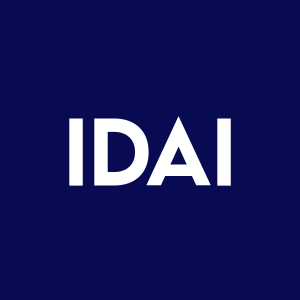Trust Stamp publishes a White Paper on the potential impact of Quantum Computing on legacy biometric systems
Trust Stamp has published a White Paper addressing the impact of developing Quantum Computer capabilities on legacy biometric systems, highlighting the immediate danger of “Harvest Now Decrypt Later” strategies
Atlanta, Georgia, Jan. 05, 2024 (GLOBE NEWSWIRE) -- Trust Stamp (Nasdaq: IDAI), the Privacy-First Identity CompanyTM providing AI-powered trust and identity services has published a White Paper discussing the potential vulnerabilities of legacy biometric systems given the development of Quantum Computing systems.
Dr. Niel Kempson, CB, FREng, Trust Stamp’s Executive Advisor on Technical Capability commented, “Methods currently used to protect communications over the Internet will be secure until quantum computers become a practical reality - experts generally estimate that this is a decade away.”
“But, we should recognise that a “harvest-now decrypt later” (HNDL) approach could be executed by resource-rich adversaries, capturing data now that can subsequently be decrypted when quantum computers become available. This would make sense for data that would still have significant value a decade or more in the future. While this has traditionally been the preserve of nation-state actors, cyber-criminals - sometimes state-supported - are now powerful adversaries too.”
“Financial institutions and others with sensitive data really should question whether they could be a potential target and whether their current implementations would be vulnerable to an HNDL attack. This is especially relevant to biometric systems where biometric data needs protecting carefully for a lifetime - unlike a password, a face or fingerprint cannot easily be reset when compromised.”
As an indication of the immediacy of the HNDL risk, in May 2022 the US Government issued a mandate to all US Federal Agencies maintaining sensitive data to deploy symmetric encryption systems to protect quantum vulnerable systems by the end of 2023.
Dr. Kempson went on to comment, “Trust Stamp’s IT2 algorithm is quantum-proof by design. If an enterprise or NGO is implementing or reviewing a biometric system today, it should actively look into the HNDL risk. It makes no sense to implement or maintain technology that will probably be unusable within the next decade, implicitly gambling on future solutions with unknown complexity and cost.”
“In 2016, the US National Institute of Standards and Technology (NIST) initiated a process to solicit, evaluate and standardize new public-key algorithms that will be secure against a quantum computer (also known as post-quantum or quantum-resistant algorithms). After six years, four algorithms were recommended for standardization with a further four candidates proposed for further consideration. Unfortunately one of those candidates was defeated within a few weeks of its release, reinforcing the difficult nature of this process.”
Copies of the White Paper can be requested by emailing Andrew Gowasack, President of Trust Stamp at: agowasack@truststamp.net
Enquiries
Trust Stamp Email: Shareholders@truststamp.ai
Andrew Gowasack, President
About Trust Stamp
Trust Stamp the Privacy-First Identity CompanyTM, is a global provider of AI-powered identity services for use in multiple sectors, including banking and finance, regulatory compliance, government, real estate, communications, and humanitarian services. Its technology empowers organizations with advanced biometric identity solutions that reduce fraud, protect personal data privacy, increase operational efficiency, and reach a broader base of users worldwide through its unique data transformation and comparison capabilities.
Located across North America, Europe, Asia, and Africa, Trust Stamp trades on the Nasdaq Capital Market (Nasdaq: IDAI). The company was founded in 2016 by Gareth Genner and Andrew Gowasack.
Safe Harbor Statement: Caution Concerning Forward-Looking Remarks
All statements in this release that are not based on historical fact are “forward-looking statements” including within the meaning of the Private Securities Litigation Reform Act of 1995 and the provisions of Section 27A of the Securities Act of 1933, as amended, and Section 21E of the Securities Exchange Act of 1934, as amended. The information in this announcement may contain forward-looking statements and information related to, among other things, the company, its business plan and strategy, and its industry. These statements reflect management’s current views with respect to future events-based information currently available and are subject to risks and uncertainties that could cause the company’s actual results to differ materially from those contained in the forward-looking statements. Investors are cautioned not to place undue reliance on these forward-looking statements, which speak only as of the date on which they are made. The company does not undertake any obligation to revise or update these forward-looking statements to reflect events or circumstances after such date or to reflect the occurrence of unanticipated events.







